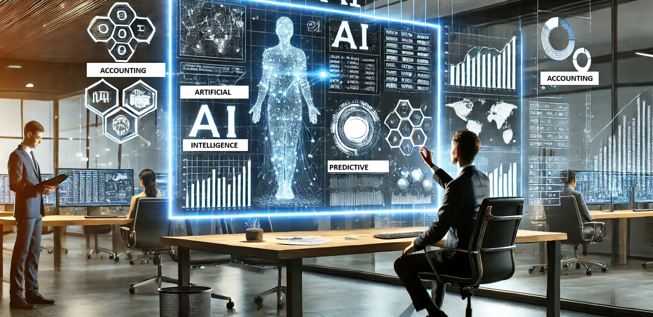In the age of digital transformation, artificial intelligence (AI) has emerged as a game-changer across industries, and accounting is no exception. While traditionally perceived as a profession rooted in meticulous number-crunching and compliance, accounting is now witnessing a paradigm shift. This transformation, driven by AI, has not only reshaped workflows but has also significantly influenced the talent landscape. The once predictable “war for talent” in accounting now demands a fresh perspective, new strategies, and an emphasis on adaptability.
The Shift in Skill Demands
Before AI, the most sought-after accounting professionals were those with expertise in tax codes, financial reporting, and regulatory compliance. While these skills remain valuable, employers are now prioritizing tech-savvy candidates who can navigate AI-powered tools and leverage them to deliver insights.
Accountants are no longer expected to merely balance books; they are tasked with interpreting complex data sets, forecasting trends, and providing strategic advice to stakeholders. AI tools like predictive analytics, automated reconciliations, and real-time reporting have elevated the accountant’s role to that of a strategic advisor. Consequently, there’s a growing demand for individuals who can blend technical proficiency with critical thinking and problem-solving abilities.
Upskilling and Reskilling: The New Norm
The rapid integration of AI in accounting has left many professionals grappling with the fear of obsolescence. However, rather than replacing jobs, AI has redefined them. Organizations now invest heavily in upskilling and reskilling their workforce to align with this technological evolution.
Training programs that focus on AI integration, data analysis, and soft skills such as communication and leadership are becoming increasingly common. For aspiring accountants, acquiring certifications in AI and data science can provide a competitive edge, while experienced professionals are leveraging their foundational knowledge to complement AI tools and algorithms.
Talent Acquisition Strategies in the AI Era
The war for talent in accounting has taken on new dimensions. Firms are revisiting their recruitment strategies to attract candidates who can thrive in an AI-driven environment. Here are some notable shifts:
- Collaborating with Educational Institutions: Companies are partnering with universities and professional bodies to design curricula that include AI, machine learning, and data analytics, ensuring that graduates are industry-ready.
- Promoting Diverse Skillsets: Firms value candidates from non-traditional backgrounds, such as IT, engineering, and statistics, recognizing their potential to bring fresh perspectives to accounting challenges.
- Emphasizing Employer Branding: To attract top talent, organizations highlight their commitment to innovation, professional development, and fostering an environment where AI and human ingenuity coexist.
The Human Touch: Irreplaceable in Accounting
While AI can automate repetitive tasks and enhance accuracy, it cannot replicate the nuanced judgment, ethical considerations, and interpersonal skills that human accountants bring to the table. Building trust with clients, navigating complex ethical dilemmas, and delivering personalized advice remain distinctly human responsibilities.
Thus, the war for talent is not solely about finding the most technologically adept individuals but also those who embody emotional intelligence, adaptability, and the ability to collaborate effectively.
Conclusion
AI has undoubtedly revolutionized the accounting profession, creating both challenges and opportunities in the war for talent. As the industry evolves, so must its workforce. Professionals who embrace lifelong learning, adaptability, and the synergy between human expertise and AI will not only survive but thrive in this new era. For employers, the key lies in fostering a culture of innovation and inclusion, ensuring they attract and retain the talent that will drive the future of accounting forward.
The question is no longer whether AI will reshape accounting, but rather: Are we ready to embrace this transformation and redefine what it means to be an accountant in the 21st century?
